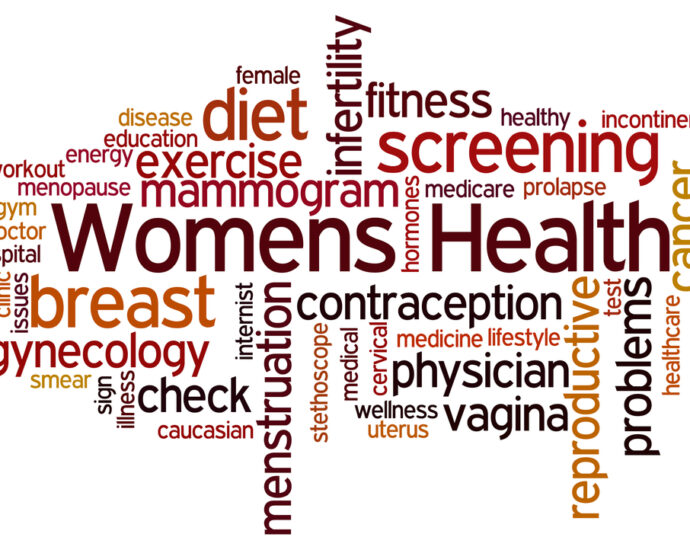Regular health screenings are a cornerstone of preventive healthcare for women, playing a critical role in detecting potential health issues before they become serious. By staying proactive with routine screenings, women can take charge of their health, reduce the risk of chronic diseases, and improve their overall quality of life. Understanding which screenings are essential and when to schedule them is key to maintaining long-term wellness.
Page Contents
Why Regular Health Screenings Matter
Preventive health screenings are designed to catch health problems at their earliest stages, often before symptoms even appear. Early detection can lead to more effective treatments, better outcomes, and in many cases, it can save lives. For women, regular screenings can help identify conditions such as breast cancer, cervical cancer, osteoporosis, and heart disease, which are more manageable when caught early.
Beyond detecting disease, health screenings also provide an opportunity for women to discuss lifestyle factors such as diet, exercise, and stress management with their healthcare provider. This holistic approach to health can prevent the onset of conditions that might otherwise develop due to neglect or lack of awareness.
Essential Health Screenings for Women
The types of screenings women need can vary based on age, medical history, and risk factors. Here are some of the most important screenings that women should consider as part of their routine healthcare:
- Pap Smear and HPV Testing:
- Purpose: Detects cervical cancer or precancerous changes in the cervix.
- Frequency: Every 3 years for women aged 21-29. For women aged 30-65, a Pap smear combined with HPV testing is recommended every 5 years.
- Why: Early detection of cervical cancer dramatically increases the chances of successful treatment.
- Breast Cancer Screening (Mammogram):
- Purpose: Detects breast cancer early, even before a lump can be felt.
- Frequency: Annually or biennially starting at age 40-50, depending on individual risk factors and doctor’s advice.
- Why: Early detection of breast cancer can significantly improve survival rates and treatment options.
- Bone Density Test:
- Purpose: Screens for osteoporosis by measuring bone strength.
- Frequency: Starting at age 65, or earlier if you have risk factors such as a family history of osteoporosis or a history of fractures.
- Why: Early detection of bone density loss can help prevent fractures and other complications associated with osteoporosis.
- Blood Pressure Screening:
- Purpose: Detects high blood pressure, which can lead to heart disease and stroke.
- Frequency: At least once every 2 years if normal; more frequently if elevated or if other risk factors are present.
- Why: Managing blood pressure is crucial in preventing cardiovascular diseases, which are a leading cause of death among women.
- Cholesterol Check:
- Purpose: Measures levels of LDL (bad) cholesterol and HDL (good) cholesterol.
- Frequency: Every 4-6 years starting at age 20, more often if you have risk factors for heart disease.
- Why: High cholesterol is a significant risk factor for heart disease and stroke, and managing it can prevent these conditions.
- Blood Glucose Test:
- Purpose: Screens for diabetes or prediabetes.
- Frequency: Every 3 years starting at age 45, or earlier if you are overweight or have other risk factors for diabetes.
- Why: Early detection and management of blood sugar levels can prevent or delay the onset of diabetes and its complications.
- Colorectal Cancer Screening:
- Purpose: Detects colon cancer or precancerous polyps.
- Frequency: Starting at age 45, with a colonoscopy every 10 years, or as recommended based on individual risk factors.
- Why: Early detection of colorectal cancer leads to better treatment outcomes and can prevent the disease from developing.
- Skin Cancer Screening:
- Purpose: Detects early signs of skin cancer, including melanoma.
- Frequency: Annually, especially for those with a history of sun exposure or a family history of skin cancer.
- Why: Early detection of skin cancer is crucial for successful treatment, particularly with melanoma.
- Thyroid Function Test:
- Purpose: Measures levels of thyroid hormones to detect hyperthyroidism or hypothyroidism.
- Frequency: Starting at age 35, every 5 years, or as recommended based on symptoms or risk factors.
- Why: Thyroid disorders are common in women and can affect metabolism, energy levels, and overall health if left untreated.
- STI Screening:
- Purpose: Detects sexually transmitted infections like chlamydia, gonorrhea, and HIV.
- Frequency: Annually, or more frequently if you have new or multiple partners.
- Why: Early detection and treatment of STIs can prevent serious health complications and reduce the spread of infections.
Conclusion
Regular health screenings are a vital aspect of maintaining a woman’s health throughout her life. By adhering to recommended screening schedules, women can significantly reduce their risk of developing serious health conditions and ensure that they receive timely treatment if any issues are detected. It is essential for women to work closely with their healthcare providers to tailor a screening plan that meets their individual needs, taking into account their age, family history, and lifestyle. Proactive health management through regular screenings is not just about preventing disease; it’s about empowering women to lead healthier, happier lives.
READ MORE: Optimizing Women’s Health: Addressing Common Nutrition Deficiencies
Sources:
https://www.webmd.com/women/ss/slideshow-screening-tests-women
https://healthsurgeon.com/health/beginners-guide-to-holistic-health/
https://www.mountsinai.org/health-library/special-topic/health-screening-women-ages-18-to-39
https://medlineplus.gov/ency/article/007462.htm
